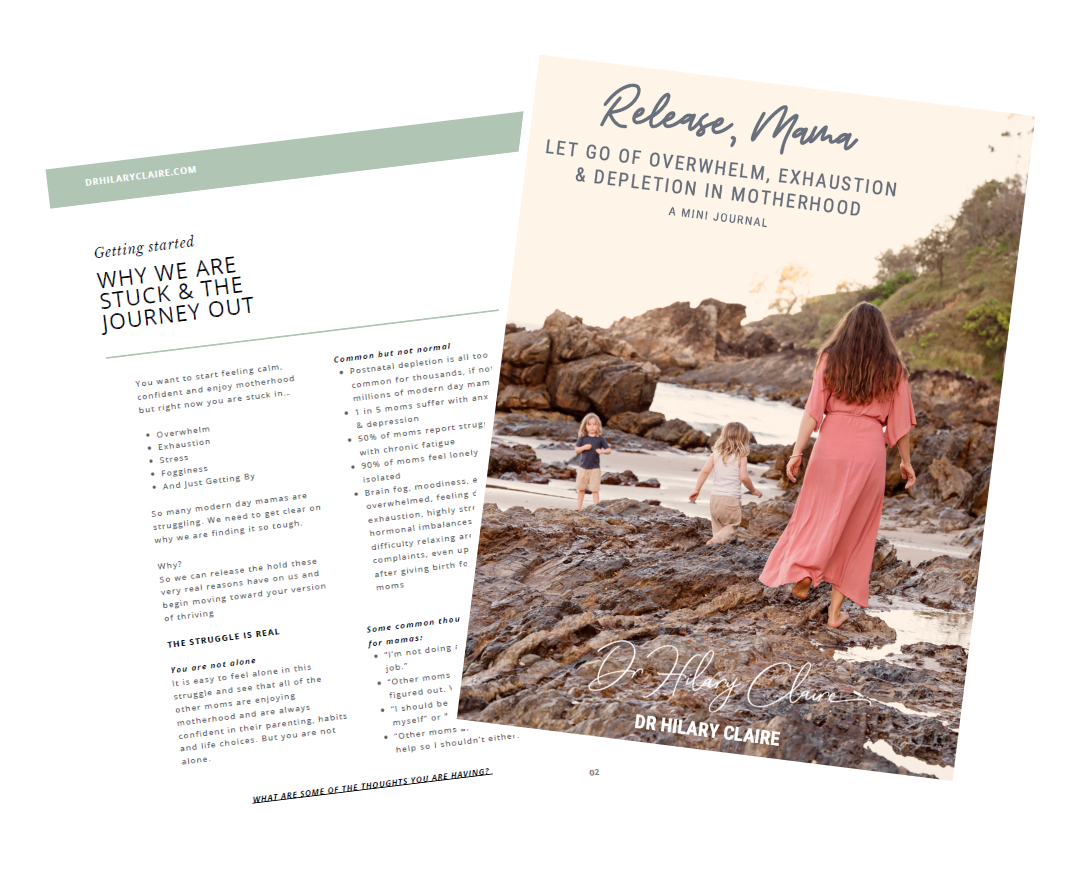5 Parent Focused Strategies to Ease a Child’s Challenging Behaviour

A friend of mine was having challenges with her 10-year-old son. He was acting out at school, ignoring his parent’s requests and having frequent tantrums. She and her husband were at their wit's end searching for ways to help him. They recognized that his behaviour was a manifestation of how he was feeling and that he was struggling in more than one way, but nothing they tried seemed to soothe the situation. So when they asked for my advice, I suggested that rather than focus solely on their kiddo, they take a few parent focused strategies out for a spin.
Why parent focused strategies are effective for helping a child’s challenging behaviour
When your child has a habit of regularly throwing tantrums, it may seem counterintuitive for you, as the parent, to review your own behaviour. After all, you're not the one screaming in the grocery store.
However, if we as parents first focus on how we are acting and shaping our interactions with our kids, we can then learn how to shift the focus away from the “bad” behaviour that the child is engaging in. The result? We suddenly have a lot more control and the ability to make changes for the better.
When we change our focus and actions as parents to support our children with the behavioural issues they are dealing with, we can help improve overall well-being for your family dynamic.
How to make the most of these suggested parent focused strategies
Each of these parent specific approaches, lifestyle shifts and emotion regulation methods can empower parents to help their children in a holistic way to be less prone to disruptive behaviours. However, it would be overwhelming to implement all strategies at once; and likely not all of these strategies will be needed simultaneously.
Pick the one strategy that resonates most with you or is the easiest to implement into your life. Start there. Then come back to these suggestions and pick a second one to focus on. And then a third and so on. Try them out and see which ones make sense for you personally.
Keep in mind that none are quick fixes and they all take work and consistency in order to see improvements but with time they can make things better.
5 parent focused strategies I recommend for easing a child’s challenging behaviour
Strategy 1: Attachment
The relationship that we have with our kids is paramount. It is essential to make sure our kids know that they are unconditionally loved, can come to us when they are feeling unsafe while still being free to venture off and explore the world when they feel comfortable to do so. The way we communicate with and discipline our kids can have a big impact on the quality of attachment* they have with us.
Ensuring that we separate the child from the behaviour is critical whether we are praising or punishing. Focus on how you word your praise and punishment so your child understands that what they did was good/bad, but not that they are good/bad as a person.
*Note – The attachment that I am discussing here is basing this off of attachment theory, which is a key psychological theory that started with Bowlby. Please don’t get this confused with attachment parenting which is something quite different – confusing I know.
Strategy 2: Value-Based Parenting
Values are the personal qualities that are most important to us and help to guide our behaviour. Often we focus on what we want to accomplish or what we want our kids to be doing. However, shifting our focus to how we act in our interactions with our kids is often really beneficial.
Some useful questions to ask yourself:
- What qualities do I want to bring to my relationship with my son?
- What sort of parent do I want to be?
- How would I want my kid to describe me?
Once we are clear on what our core parenting values are, it is helpful to be intentional about these and keep them in focus throughout our days. It is great to remind yourself of your key values on a daily basis. Ask yourself in the morning: What kind of parent do I want to be today? How can I act in accordance with my key parenting values today?
In every situation we have two choices: we can act in line with the sort of parent we want to be or we can act in unhelpful ways that take us away from the sort of parent we want to be.
Become aware of the decisions you make (many of which are initially unconscious and automatic). Practice pausing to consider what your options are and what action is most aligned with your core values given the current situation with your child. Then make a conscious intentional decision about your behaviour that is guided by your core values instead of just doing what you have always done.
If we practice making our decisions conscious and showing up like the person we want to be, it gets easier and easier over time and these new ways of acting become your new habits. All we really have control over in this world is how we personally act. So make your decisions and actions count and help to move you to be the type of parent you are proud to be. As a bonus, you will be influencing your child’s behaviour through your actions instead of just telling them what to do.
Strategy 3: Mindful Parenting
Practicing being present, curious, and nonjudgmental toward your child and within your interactions with them can be hugely beneficial. Being mindful is simple but not easy. It is about consciously showing up to the interactions you have with your kid and focusing on what you are actually doing with them instead of only being physically there with your mind somewhere else (planning what to eat for dinner, worrying about bills, etc). Be curious about why they are behaving how they are instead of assuming you know. Notice how your interactions are when you are fully with them physically and mentally.
A Dr Hilary Claire Challenge For You:
Practice being fully present with your kid at least once a day.
Parenting from a place of curiosity and no judgment (or at least noticing the judgments that arise in your mind) can help you to empathize with your child and better understand what he is going through. Put yourself in their shoes. Look at the world from your child’s perspective. Consider what is going on, what your child might be feeling and why. From this more understanding view, you can work with your child in coming up with resolutions instead of butting heads.
Strategy 4: Clear Communication
The way we communicate with our children influences how they act. Create a safe relationship for them to open up about what’s going on for them. Talk calmly. Be clear about how you are feeling and what you would like from them or a situation. Listen to them. Listen to how they are feeling and what they want.
Reinforce the behaviours you want them to do more of while giving the “bad” behaviours less focus. This can be done by highlighting any positive action that they take – even if it seems super small to you.
For example, the days that they make their bed let them know that you noticed this and were impressed by their initiative and resist the urge to snap at them the next day when they don’t make their bed. If we stay consistent with giving attention to what we want and starving those behaviours we don’t like of attention, over time the better behaviours will increase and your child will enjoy less nagging from you.
Strategy 5: Self Care
Take care of yourself. Give yourself pockets of time to do things you enjoy, eat nourishing food, move your body, get adequate rest and surround yourself with people who are uplifting and supportive. If we don’t prioritize ourselves, we will quickly run out of energy to show up for our kids as the sort of parent we want to be. This is hugely unhelpful for everyone. When you take time to take care of yourself, you’ll be more energized, relaxed and able to calmly approach parenting your child.
Parent focused strategies can greatly help disruptive child behaviours
Our children look to us in many ways as an example. They watch our body language, how we talk, how we regulate our own emotions and everything in between. When a child is demonstrating disruptive behaviours, adjusting our own behaviours and approaches as the parent can greatly help navigate and calm the situation. Try implementing some of these strategies today!
I’d love to hear from you and your experiences, so please feel free to leave a comment or email me.

Release, Mama Mini-Journal
In this mini journal, you will identify your unique reasons for struggling with exhaustion, overwhelm, guilt or burnout. Then you will be guided in letting these go and taking effective action to create a future that makes it easier for you to thrive.
Start living motherhood on your own terms.

50% Complete
Keep Up-To-Date
For a regular dose of useful resources and articles from Dr Hilary Claire delivered straight to your inbox pop your details below.